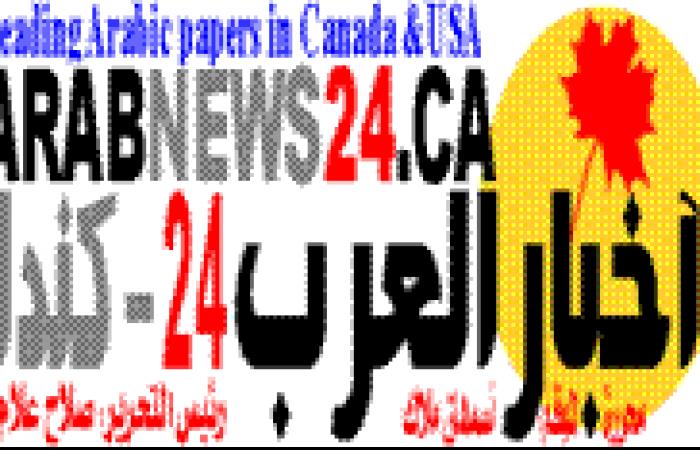Arabnews24.ca:Monday 24 January 2022 08:50 AM: Several traditionally conflicting Middle Eastern powers are poised to launch ambitious energy partnerships. While this brings the promise of a timely economic boost to all parties, its most important legacy could be its contribution to regional peace.
When I casually made this argument to a colleague last week, he scoffed that the Middle East will never realize peace. In light of the endemic and sometimes catastrophic violent struggles the region has witnessed during the last 20 years, his pessimism is understandable, but I believe it is misplaced.
Advertisement
After all, world history yields many examples of non-Arabs doing far worse things to their neighbors, with the warring countries going on to build cooperative relationships and become strategic allies on occasion. This is why we should be excited by the prospect of Saudi Arabia exporting electricity to Iraq and Israel purchasing solar energy from Jordan produced by Emirati power stations.
For the latest headlines, follow our Google News channel online or via the app.
France and Germany are perhaps the most obvious example of adversaries turned friends, but there are many others, such as Japan and the US, and England and Scotland. Moreover, in many cases, the transition from mortal enemies to trusted allies has occurred remarkably quickly, requiring as little as two generations for hatchets to be buried.
In fact, in today’s Middle East, there is the prospect of an even quicker rapprochement between countries that have had bitter longstanding conflicts. Iraq, in particular, has been a persistent threat to the GCC countries, but providing their giant neighbor with a stable source of power through an integrated electricity grid brings the prospect of a far more positive relationship.
Building economic ties – especially trade in goods and services – has often played a central role in repairing politically and socially strained relationships. The European Union is the most salient illustration.
In 1951, Belgium, France, Italy, Luxembourg, the Netherlands, and West Germany – a mere six years after facing off in the bloodiest war in world history – established the European Coal and Steel Community to regulate the trade of these two critical commodities.
Building economic ties – especially trade in goods and services – has often played a central role in repairing politically and socially strained relationships. (File Photo: Reuters)
The experiment stopped these countries from the third attempt to mutual destruction by paving the way for the high levels of economic and political integration we see in Europe today.
Similar patterns of economic integration reducing the likelihood of armed conflict and engendering cordial relations are observed in many other spheres, including East Asia (ASEAN), South America (Mercosur), North America (NAFTA), and elsewhere. According to classical liberal philosophers such as Immanuel Kant, Thomas Paine, and Adam Smith, the pacifying effect of trade is caused by two distinct mechanisms.
The first is that commerce makes people rich, and war disrupts business, making people who trade with one another averse to combat. By the end of the Cold War, it became evident to countries on either side of the Iron Curtain that all of this conflict was highly wasteful and that a far more profitable use of their time was buying each other’s goods and services. In the 21st century Middle East context, Saudi Arabia exporting electricity to Egypt via their newly connected grids helps cement the existing partnership between two of the most geopolitically essential and well-armed Arab countries.
The second is that commerce is a positive experience for both sides, making each trader like their trading partner. This makes it harder for you to demonize or dehumanize one another in the manner associated with war. If you frequently shop at the same grocer or dine at the same restaurant, you have likely developed an affinity for the staff you regularly interact with since they are serving you well. They probably reciprocate because you are a pleasant patron.
Some of the resentment that has been brewing in Iraq toward Iran is due to the latter’s failure to supply electricity reliably during the hot Iraqi summers. Individual Iraqis involved in the successful procurement of electricity from its Arab Gulf neighbors will develop positive emotions toward the sales team and technicians since their brains will associate their trading partners with cool air conditioning during August.
Similarly, the GCC countries supplying the electricity will appreciate the opportunity to make millions of dollars that they can spend on the commodities they can’t produce at home, such as bananas, Pfizer vaccines, and Toyota Land Cruisers.
As US influence in the Middle East wanes, and the powerful countries in the region try to expand their power through military means, decision-makers will realize that no single nation can subjugate the others.
The quicker their focus shifts from pipedreams of hegemony toward trading with neighbors, the faster peace will take root.
The French economist Gustave de Molinari reflected: “Just as war is the natural consequence of monopoly, peace is the natural consequence of liberty.”
Read more:
Aramco CEO says oil demand nearing pre-pandemic levels: Report
Libya parliament committee urges change of PM
Introducing remote learning will rob children of crucial formative experiences
Disclaimer: Views expressed by writers in this section are their own and do not reflect Al Arabiya English's point-of-view.




